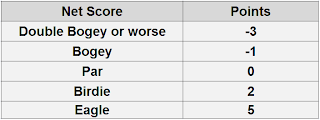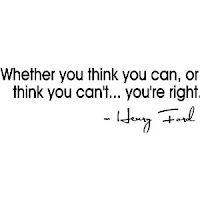For the average 15 plus handicapper, consistency is rarely a strong suit - fat and thin shots, lack of proper course management, rarely add up to a low score.
 Two traits to consider for a better overall golf game, in this author's opinion, are...
Two traits to consider for a better overall golf game, in this author's opinion, are...Consistency and Motivation.
What does it mean to have a consistent golf game?
Dictionary.com says consistent means, "constantly adhering to the same principles, course, and form"...that being said, does it mean to have a repeatable swing? Is it important to have a reliable putting stroke?
Yes and yes to the above questions and, in addition, it is important to keep your mind free from those distractions that would change the course of your consistency, such as golfers offering help or reading too many golf tips from different sources, for example.
Dictionary.com says consistent means, "constantly adhering to the same principles, course, and form"...that being said, does it mean to have a repeatable swing? Is it important to have a reliable putting stroke?
Yes and yes to the above questions and, in addition, it is important to keep your mind free from those distractions that would change the course of your consistency, such as golfers offering help or reading too many golf tips from different sources, for example.
On the flip side, according to instructor Kiel Alderink in a golfcity.com article, "it is the inconsistency that makes the game exciting," but, in my opinion, not necessarily for beginners. He goes on to say,...
"If you played golf every day and shot the same exact score, would that be any fun or challenging? If you hit the ball the same height, distance, and shape every time you would get very bored. It is the unknown that makes the game exciting. The chance to put up your best score every time you tee it up is exciting. If you knew you were going to shoot the exact same score as always, well that would be a walk in the park, literally."
I prefer less excitement and lower scores!!"If you played golf every day and shot the same exact score, would that be any fun or challenging? If you hit the ball the same height, distance, and shape every time you would get very bored. It is the unknown that makes the game exciting. The chance to put up your best score every time you tee it up is exciting. If you knew you were going to shoot the exact same score as always, well that would be a walk in the park, literally."
Related Reading - Golf Psychology: Tips to Avoid Choking
As for motivation, Merriam Webster dictionary says about this particular drive, it is, "the act or process of giving someone a reason for doing something."
I throw this question out at you ... what makes/keeps you motivated to play golf?
Is it a beautiful day for a walk in the park or, perhaps, have you been determined to lower your handicap, have been working on your short game and want to see if your efforts are bearing fruit?
For this author, and since I started writing the Golf for Beginners blog, I want to continue to have fun. I look forward with enthusiasm during the game to see if I will play better than the prior week (that and I get to play a round with my husband).
Dr. Deborah Graham, in a Golfpsych.com article summed up best the reasons to stay motivated:
"To reach full potential, it is important that competitive golfers retain as primary motivation for playing golf, a great love of the sport and an appreciation of the tremendous personal and competitive challenges it provides."
Follow Golf4Beginners on Twitter and let us know your thoughts in the comments section of this golf blog!




